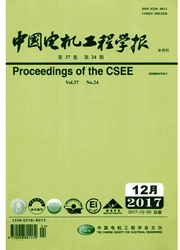

 中文摘要:
中文摘要:
从公共品角度分析了传统管制下可靠性资源配置由于电力企业的垄断地位和缺乏用户参与产生的低效率问题。为了提高配置效率,提出在用户和电力企业之间建立委托一代理关系,从信息角度分析激励合同中关键参数设定问题及这些参数对电力企业努力水平的影响程度,并针对代理方的决策行为、委托方参与问题及多次动态合同关系进行了模型化分析。算例分析表明,用户可以根据电力企业不同的信息状态和风险态度设立不同的激励合同,从而引导电力企业在获得最大收益的同时,维持和保证电力系统趋向最优可靠性配置水平,论证了该机制能充分揭示可靠性的需求信息,促进可靠性资源的优化配置。
 英文摘要:
英文摘要:
The paper analyzes the problem of inefficient allocation of reliability resources in the terms of public goods under traditional regulatory environment, which is resulted from power enterprises' monopoly status and the lack of customers' involvement. To improve the efficiency of allocation, this paper applies principal-agent mechanism into the relationship of customers and power enterprises, and then studies the configuration of key parameters of incentive contract and the influence over the power companies' effort from the information perspective. In addition, the decision-making behaviors of agent, participation of principal and dynamic relationship of the corresponding contracts, are analyzed modally. Numerical results show that different incentive contracts can guide power enterprises to maintain and guarantee the tendency to the optimal level of power system reliability which are designed by customers according to the different information states and risk attitudes. Furthermore, it is proved that the mechanism can fully reveal the reliability demand information and promote the optimal allocation of reliability resources.
 同期刊论文项目
同期刊论文项目
 同项目期刊论文
同项目期刊论文
 期刊信息
期刊信息
